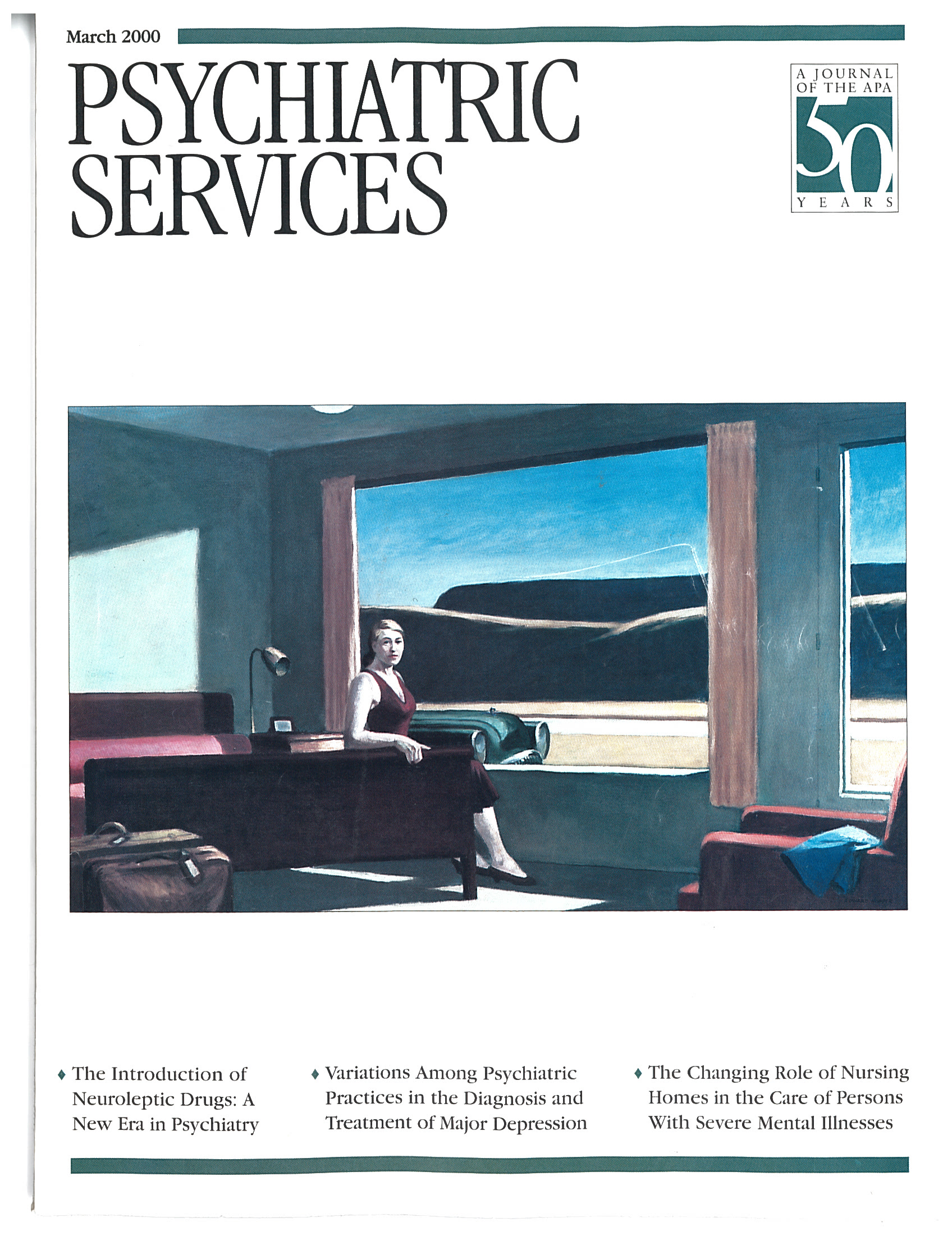No Forced Drugging
To the Editor: The involuntary psychiatric drugging of citizens who are living out in the community, even in the supposed sanctity of their own homes, is a profoundly intrusive human rights violation, which is absolutely opposed by the 75 groups in Support Coalition International. Many of our members have personally experienced the trauma of forced psychiatric drugging.
In the November 1999 issue, for the second time in less than three years, this journal has chosen to turn over its highly visible Taking Issue column to one of the main proponents of forced drugging, E. Fuller Torrey (1), so that he could promote his extremist and divisive political agenda.
This time Torrey is claiming that forced drugging of people with tuberculosis is a good analogy for forced drugging of those of us diagnosed with psychiatric disorders. There are two possibilities:
On the one hand, is Torrey calling us deadly pathogens? Let me reassure your readers that we psychiatric survivors are human beings. Scapegoating, demonizing, and targeting whole groups of people as some kind of a disease in the body politic is a terrifying approach, with roots in the eugenics movement.
On the other hand, is Torrey claiming that our bodies are occupied by a disease that is similar to tuberculosis? If so, then please note that there is still no urine test, blood test, brain scan, or genetic screen that can successfully diagnose any of the alleged psychiatric disorders targeted by involuntary outpatient psychiatric drugging. In fact, Torrey's own bizarre "pet theory" that many of us diagnosed with schizophrenia have been infected by a cat virus has been discredited (2). Apparently what Torrey cannot accomplish by science, he hopes to achieve by force.
Addressing the causes of violence in our society will take massive social change. There is no magical "peace pill" that can provide a quick fix to the sickness of violence in the American soul.
At the same time that Torrey's political group lobbies for forced outpatient drugging, science is proving there are serious unintended consequences to relying on psychiatric drugs. Researchers now warn that long-term use of the most typical drugs administered during involuntary psychiatric drugging—the neuroleptics—can apparently lead to structural changes to the size and shape of the brain that are visible under magnetic resonance imaging (3). The public, patients, and family members are seldom informed of these risks. Perhaps such neuroleptic-linked brain changes might explain why mental and emotional withdrawal effects after quitting neuroleptics can be so powerful; these effects are exploited by Torrey to justify a lifetime of forced drugging.
When are the editors of Psychiatric Services going to start running editorials about challenging the narrow-minded, reductionist, mechanical "chemical crusade" approach promoted by the psychiatric drug industry, which is one of the main sources of funding for the American Psychiatric Association? There are more effective, more humane, more sustainable ways to help people in severe crisis other than the frightening violence of forcing a potentially deadly chemical into us against our will to control our thoughts and feelings. Pushing forced psychiatric drugging is convincing more and more psychiatric survivors to avoid seeking any help from the mental health system. Your repeated decision to publish Torrey's venom shows they may be right.
Mr. Oaks is co-coordinator of Support Coalition International in Eugene, Oregon.
1. Torrey EF, Miller J: Can psychiatry learn from tuberculosis treatment? Psychiatric Services 50:1389, 1999Google Scholar
2. Waltrip RW: Evaluation of Torrey and Yolken's feline viral zoonosis theory of schizophrenia. Schizophrenia Bulletin 21:173-178, 1995Crossref, Medline, Google Scholar
3. Gur RE, Maany V, Mozley PD, et al: Subcortical MRI volumes in neuroleptic-naive and treated patients with schizophrenia. American Journal of Psychiatry 155:1711-1717, 1998Link, Google Scholar



